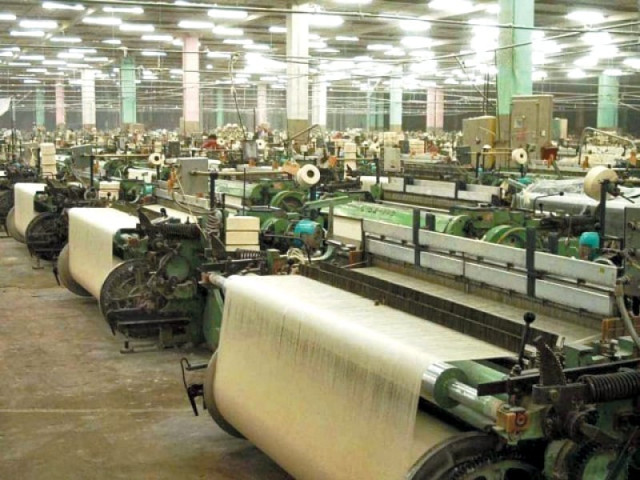Stability through dispersal: Diversification shields Indus Group from crisis
Spreading units across Pakistan protects company from energy crisis in Punjab and security situation in Karachi.

Indus Group has been in the spinning business for over half a century and exports over 70% of its yarn produce to China, which has propelled the profitability of not only the Group, but the whole industry. PHOTO: FILE
When Karachi witnessed some of the worst violence of its recent history in the early 1990s, many businesses closed down, diversified or completely shifted to other parts of Pakistan. Indus dyeing and manufacturing company is one of those examples that successfully diversified its businesses from Karachi and Hyderabad to Faisalabad and Lahore.
Today, in the light of the prevailing energy crisis and security issues, the diversification that the company made in the last 20 years is paying off. Punjab has relatively better law and order conditions than Karachi, but it is crumbling due to the energy crisis. Karachi has better availability of gas and electricity, but much worse security situation.
Indus Group has been in the spinning business for over half a century, producing different types of yarn. The group started it first spinning factory in the early 1960s in Hyderabad and established another in Karachi. But after Karachi’s political violence of early-90s, the group decided to diversify its units to the north.
After establishing units in Multan and Faisalabad, the group decided to move to finished products. The management then entered into a joint venture with its old business partner WestPoint, an American company, and set up a towel factory in Lahore, from where it exports towels to all major markets of the world.
Now, the company is looking once again towards the south of the country. This time it intends to setup a denim factory at Port Qasim near Karachi. “The reason for choosing Port Qasim is that you can directly export your products with no transportation costs for imports or exports, and then there is ample electricity at the port that you do not find in other parts of Pakistan,” Chief Executive of Indus Dyeing and Manufacturing Company Shahzad Ahmed told The Express Tribune in an interview.

With its head office in Karachi, Indus Group’s annual turnover is over $70 million with two publicly listed companies and two private limited companies, whose majority shares are held by the family.
Indus Dyeing – a listed company at the Karachi Stock Exchange (KSE) – posted a profit after tax of Rs1.25 billion for the year ended June 30, 2012 against Rs2.13 billion in the previous year.
Sunrays Textile Mills is Indus Group’s other publicly listed entity, also listed at the KSE.
Apart from a textile factory near Faisalabad that the group acquired years ago, the group has one unit in Muzaffargarh, Southern Punjab which was being extended, for which the company will hire some 400 new employees.
The China factor and industrialisation
Like many other spinning textiles companies of Pakistan, Indus also exports over 70% of its yarn produce to China. Heavy yarn import from China is the single biggest factor of better earnings for yarn manufacturers in Pakistan and India especially in the last one year.
China has been importing considerable quantities of yarn from Pakistan and this trend has now been an established one in the last three years, says Ahmed, adding “but I think the spinning industry in Pakistan has not grown as it should have grown in the last three years mainly because of the prevailing energy crisis.”
In Punjab, like many other industries Indus Group has been hurt by the energy crisis, he said, adding that the worst part of operating in Karachi is the deteriorating law and order that mainly affects businesses in Southern Pakistan.
“Indus Group is confident that any improvement in the law and order and the energy crisis in Pakistan will attract huge investment in country especially in the textile sector,” said Ahmed.
Published in The Express Tribune, March 31st, 2013.
Like Business on Facebook to stay informed and join in the conversation.



















COMMENTS
Comments are moderated and generally will be posted if they are on-topic and not abusive.
For more information, please see our Comments FAQ